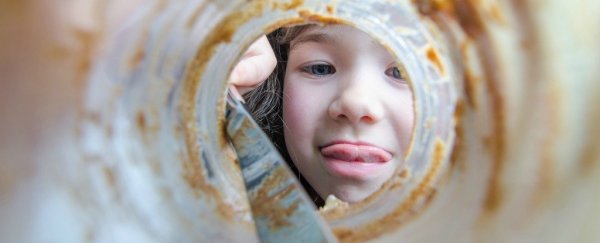Children who are highly allergic to peanuts stand a significant chance to reduce the risk of adverse and potentially life-threatening reactions to the food, new research suggests.
In a clinical trial of young peanut-allergic children aged between one and three years old, the majority of participants who underwent an oral immunotherapy regime saw marked improvements in their condition during the experiment – a result that could lead to new treatments.
"The landmark results of the IMPACT trial suggest a window of opportunity in early childhood to induce remission of peanut allergy through oral immunotherapy," says Anthony S. Fauci, the director of the National Institute of Allergy and Infectious Diseases (NIAID), which funded the trial.
"It is our hope that these study findings will inform the development of treatment modalities that reduce the burden of peanut allergy in children."
In the trial, 146 children were recruited, with two-thirds of the group receiving peanut immunotherapy, in which they took a small daily oral dose of peanut flour (made from crushed peanuts), mixed in with their food to mask the taste.
The remaining participants ingested a daily dose of a placebo flour that contained no peanuts.
After two and a half years of ongoing treatment, approximately 70 percent of the children who received the peanut immunotherapy had become desensitized to peanut, meaning they were able to eat 5 grams of peanut protein (equivalent to 1.5 tablespoons of peanut butter) without having an allergic reaction at the conclusion of the experiment.
What's more, about one-fifth (21 percent) of the participants in the immunotherapy group had achieved remission, which in the study was defined to mean the children didn't have an allergic reaction when they consumed the same amount of peanut protein six months after the treatment course had ended (during which time they had avoided eating peanuts).
By comparison, only one child (of fifty children) in the control group showed signs of desensitization or remission, the researchers found.
The findings aren't the first evidence of the effectiveness of peanut immunotherapy in young children, but it is the first study of its kind investigating the therapy in under-fours, the researchers say.
And we need all the insights we can gather, given this is an issue that affects up to 2 percent of children in the US, and for which effective remedies are sorely lacking.
"Other than avoidance and medication to treat allergic reactions or anaphylaxis, there are no treatment options, resulting in a considerable burden on allergic children and their caregivers to avoid accidental exposure," says pediatric allergist and immunologist Wesley Burks from the University of North Carolina at Chapel Hill, who led the trial.
"Exploring safe and effective therapy options for children with peanut allergy is crucial to improving quality of life for this group of patients, particularly as most children remain allergic for their lifetime."
According to the results, oral peanut immunotherapy could be just such a therapy, although it's worth noting that even in the controlled conditions of the experiment – which gradually increased the quantity of peanut protein powder given (from 0.1mg to 2,000 mg) – most children did have at least one allergic reaction to their dosage at some point.
While most of these reactions were mild or moderate, 35 of the events involved treating the participant with epinephrine, which serves as a reminder of how ever-present the health risks of severe allergic reactions really are.
For those who underwent the treatment, though, the results suggest oral immunotherapy can significantly alter patients' sensitivity to peanut allergens, and the youngest may benefit most of all.
"Interestingly, we also observed that those children who did achieve remission were more likely to be at the younger end of the age group, with the best outcomes in children aged one year old, suggesting that very early interventions may provide the best opportunity to achieve remission," says first author of the study, Stacie Jones, a pediatric allergist-immunologist from the University of Arkansas for Medical Sciences.
"However, there were only small numbers of children aged one year old enrolled in our study, so more studies are needed to investigate this finding."
The findings are reported in The Lancet.
